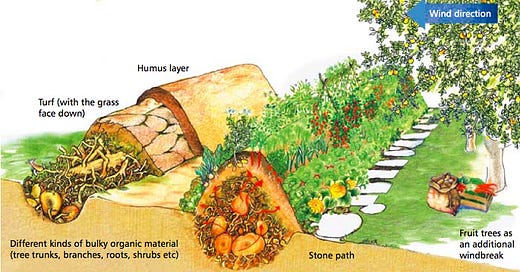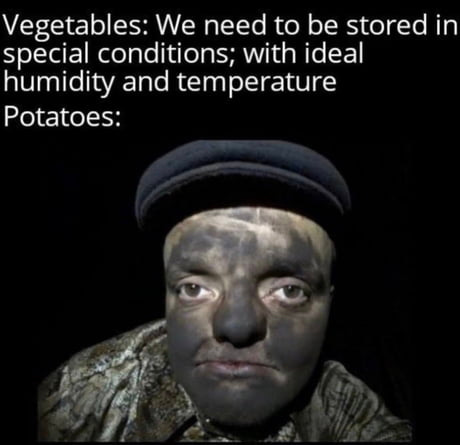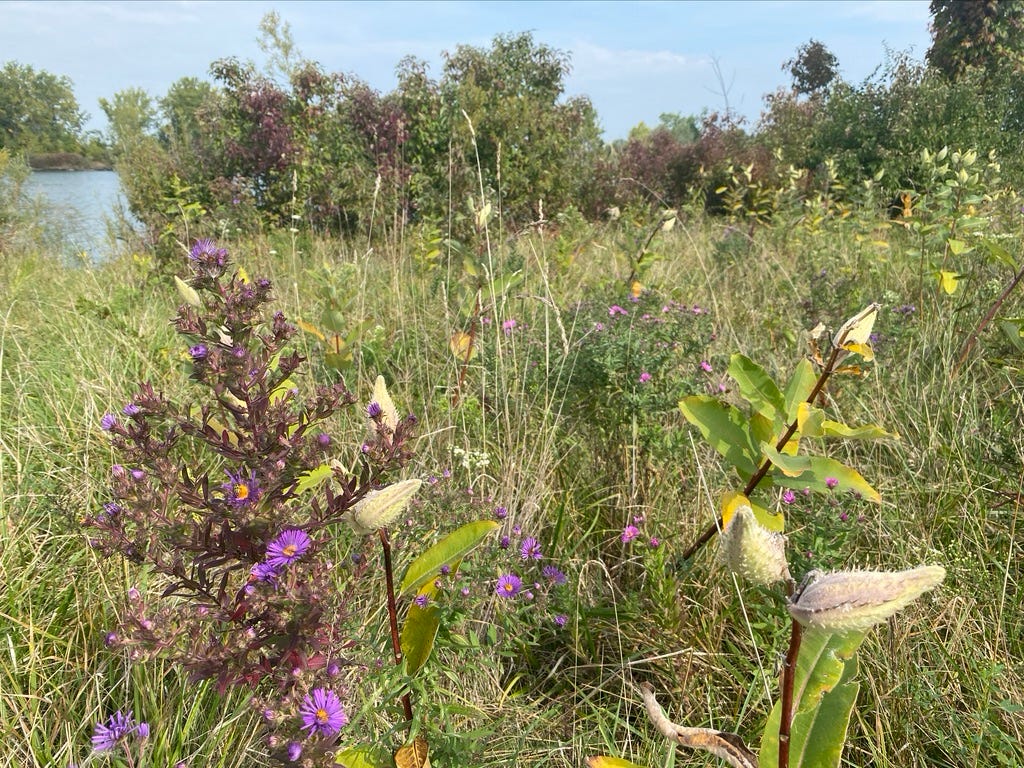Something that anyone who has ever tried to garden can tell you is that it’s easy to grow weeds but hard to grow crops. It’s kind of like that old joke about how it’s hard to light a fire in your fireplace but easy to burn your house down. (For the record, it’s easy to grow weeds because they serve a very specific ecological role as quick cover species that eventually prepare the ground for the hardier long-term residents. Weeds shelter the soil, fight against erosion, and attract animals to once-barren land. Pretty cool of them.)
One simple and effective method for planting things besides weeds is called hugelkultur, or hill culture. Using this strategy you—surprise—build a hill of organic material that forms a raised, resource-efficient platform for growing herbs and flowers and veggies. The logs and branches you place at the core of your hill release nutrients as they decay, and provide a constant source of heat to lengthen the growing season. That breakdown aerates the soil and soaks up water like a sponge, meaning that you rarely have to even water the plants once your hill is up and running. There’s lots you have to get right on the top layer to make it all work, but really the whole thing runs on its foundation, that mess of composting wood that sits at the heart of your hill.
Besides the practical questions, hugelkultur raises an existential one; I’ve never spent much time considering what a hill is before this. It turns out a simple hill isn’t all that simple. There’s a whole robust infrastructure there. That something like a hill is itself a type of technology, housing an organic feedback loop, is not something that had occurred to me. But it does have all sorts of other implications for my life.
I’ve been beating myself up lately about my inability to get anything on the page. A million ideas have come and gone; I’ve begun several drafts of things in the last few weeks that I summarily discarded because even I didn’t find them interesting.
But I am a person who needs to go out and do new things, and then have time think about them, in order to write anything worthwhile. I also need to read, both broadly and deeply, to continue to orient myself as a writer and human being. And in the chaos of moving across the country I have done plenty but I have had precious few chances to think about any of it, or how it fits into my larger understanding of the world. On top of that I’ve been looking at my phone more and more and diving into books less and less.
In other words, I’ve barely even started laying down any new bulky organic material. I have neglected to create that robust foundation required to sustain my creation in perpetuity. If I skip that step there’s little hope that flowers and herbs will start cropping up, even if I slap down some turf and water it like crazy. You need that core layer to feed and warm the rest of the system or else nothing worthwhile will happen.
For whatever reason this is a lesson that I need to relearn a few times a year, even when my life isn’t pure chaos. It feels good to have found that truth again and to have something to share with you all, however meager—those first green shoots!—as a result.
Thanks, as always, for reading. If you feel like leaving me a comment about what you’re working on and how you lay down your proverbial compost for it, I’d love to read it.
I’ll talk to you next week.
-Chuck
PS - If you liked what you read here, why not subscribe and get this newsletter delivered to your inbox each week? It’s free and always will be, although there is a voluntary paid subscription option if you’d like to support Tabs Open that way.






